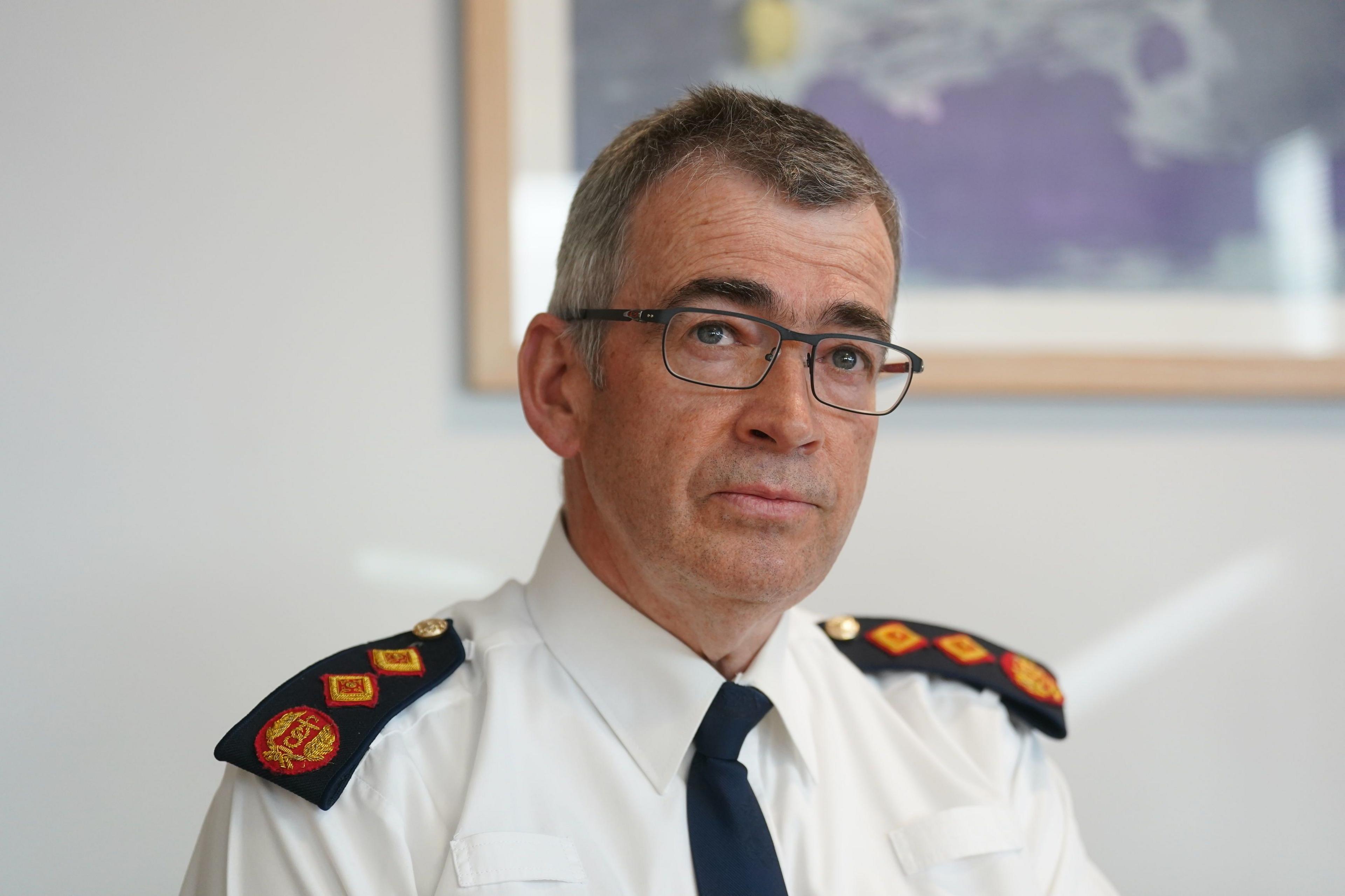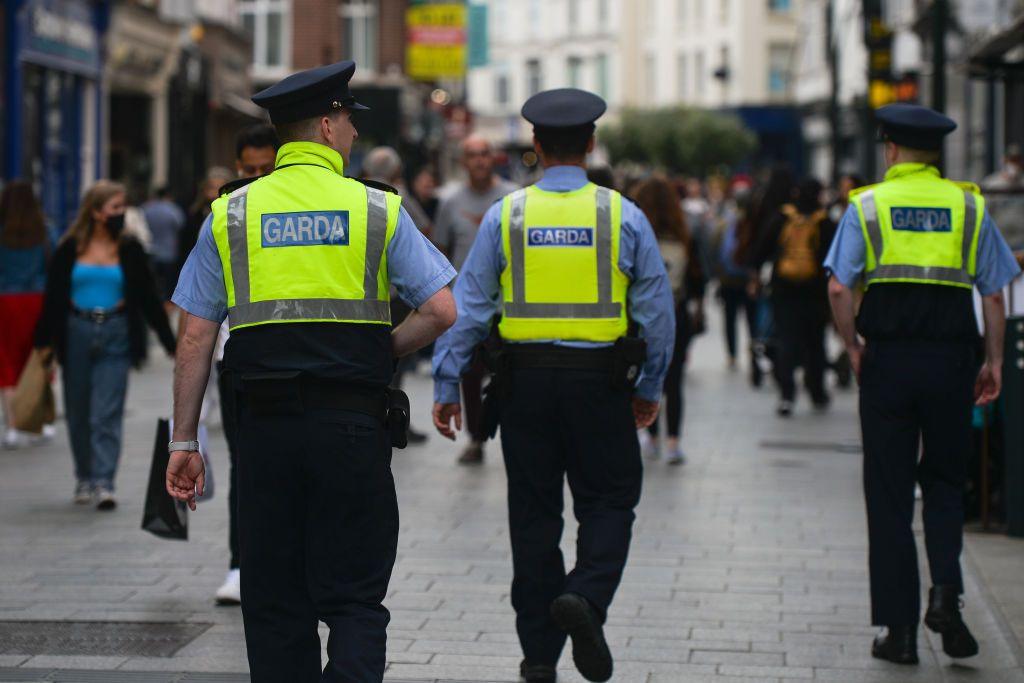Irish police chief to meet officer representatives over rota row

Garda Commissioner Drew Harris has been in charge of the force since 2018
- Published
The head of An Garda Síochána (Ireland's police force), Commissioner Drew Harris, is to meet the Garda Representative Association (GRA) on Thursday.
It came after the first day of action by gardaí (officers) on Tuesday caused disruption to policing in the Republic of Ireland.
Many highly populated areas of Dublin were left with only one patrol car and there was a scramble to find an officer to cover the home of the Irish president, Áras an Uachtaráin.
This sparked concerns about the ability to police any protests that may emerge on budget day on 10 October - the next scheduled day of action.
Politicians were intimidated by crowds outside Leinster House - the home of the Oireachtas (Irish Parliament) as they returned from summer recess in September.
The meeting has been scheduled in the hopes of ending the five-day refusal of voluntary overtime shifts by rank and file gardaí in a row over rosters.
The commissioner met with the Garda associations collectively four times in the past week, to no avail.
The first day of action was held on Tuesday, and is scheduled to continue for another four consecutive Tuesdays, including Budget Day and Halloween.
A strike is planned for 10 November if no agreement is reached.
However, one gardaí who spoke to BBC News NI said there was a general feeling that neither side would budge in the upcoming meeting.
“Harris has his mind made up, we’re not expecting to see any movement from either side until after Budget Day," they said.
The reintroduction of what’s known as the Westmanstown roster is at the centre of the dispute.
This would mean a return to the pre-pandemic six-day working weeks, followed by four days off.
Rank and file gardaí had previously worked four days on and four off, which the majority prefer due to better work-life balance among other reasons.

Many gardaí have been refusing voluntary overtime
In July, the Garda associations were given three months’ notice that the force would be returning to the Westmanstown Roster on 6 November.
The GRA said the six-day week would mean 47 additional days on duty per year for some members, increasing commuting and childcare costs.
After an overwhelming vote of no confidence in Belfast-born Mr Harris by the GRA last month, it was decided voluntary overtime would be withdrawn.
Morale and belief in the withdrawal of labour is said to be positive among officers.
A Garda spokesperson told BBC News NI that the commissioner had "repeatedly stated" he and Garda management were available for "intensive talks with the Garda associations to deliver a new roster that best meets the policing needs of the people of Ireland and gardaí.
"The commissioner re-iterated this numerous times during the previous week," the spokersperson added.
"Despite the announcement about rotas being made more than two months ago, the GRA only informed Garda management on 22 September that it regarded the return to the collectively agreed Westmanstown Roster on 6 November as a precondition to talks on a new roster.
The return to the Westmanstown Roster will provide the people of this country with an additional 500,000 policing hours – or the equivalent of an additional 320 gardaí – compared to the Covid-19 emergency roster."
"This increase in policing hours will lead to an increase in Garda visibility and a better service to victims of crime.”
There have been no preconditions to talks put down by the Commissioner and Garda management, according to An Garda Síochána.
Irish Justice Minister Helen McEntee has repeatedly stated she would not intervene on the issue.
“I will not direct the Garda commissioner, nor will I direct members, as to when or how or where they should be working,” she told RTÉ Radio this week.